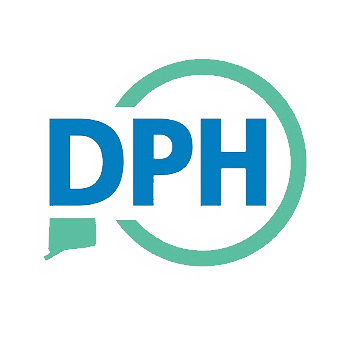Syndromic Surveillance
The Connecticut Department of Public Health (CTDPH) has transitioned to a new electronic syndromic surveillance reporting system EpiCenter. CTDPH has contracted with Health Systems Monitoring, Inc. (HMS) to implement the EpiCenter system http://www.hmsinc.com/ Opens in a new window.
Data Submission
Reporting Requirements
The required reporting of Emergency Illnesses and Health Conditions by healthcare providers, which include healthcare facility managers, is done in accordance with the DPH’s annual List of Reportable Diseases, Emergency Illnesses and Health Conditions in a format approved by the Commissioner. See Conn. Gen. Stat. §§ 19a-2a(9) and 19a-215(b). EpiCenter is the Commissioner’s new approved format for the reporting of Emergency Illnesses and Conditions.
Data Reporters
Eligible Hospitals will have the option to attest to active engagement for the Syndromic Surveillance PH measure OR exclude from the measure because DPH did not declare readiness for 2017 in the required time frame. DPH will accept data from emergency departments and hospital-affiliated urgent care centers. DPH declared readiness for the Syndromic Surveillance PH measure on October 31, 2016.
Eligible Professionals: DPH does not have the capability to accept syndromic surveillance data in a MU-compliant manner for EPs. EPs must exclude from the measure based upon the criteria that EPs “Operate in a jurisdiction for which no public health agency is capable of receiving electronic syndromic surveillance data from EPs in the specific standards required to meet the CEHRT definition at the start of the EHR Reporting Period.”42 CFR 495.22(e)(10)(i)(B)(2)(ii) and 42 CFR 495.22 (e)(10)(i)(C)(2)(ii); 42 CFR 495.22 (e)(10)(ii)(C)(2)(ii).
Minimum Required Data Elements for Data Submission in EpiCenter
CDC, in collaboration with the International Society for Disease Surveillance, has developed and published syndromic surveillance messaging guides. These guides support Meaningful Use programs that employ health information technology to improve the quality and value of American healthcare. The Public Health Information Network (PHIN) Messaging Guide for Syndromic Surveillance is available on the CDC website: https://www.cdc.gov/phin/resources/phinguides.html Opens in a new window
Reporting specifications for Epicenter are described in HMS’s Technical Specifications for Facility Data Transmission. A copy of this document will be made available to facilities during the onboarding process. Required data elements for the DPH implementation of EpiCenter include:
-
Facility identifier
-
Encrypted patient identifier
-
Encrypted visit number
-
Date and time of healthcare encounter
-
Patient date of birth or age in years
-
Patient home zip code
-
Patient gender
-
Patient class
-
Free text chief complaint
-
Ethnicity
-
Country of origin
-
Discharge disposition
-
Discharge diagnosis
-
Discharge date/time
-
Triage notes
Data Use
Effective 2018, reportable conditions to the list of Emergency Illnesses and Health Conditions have been modified. This modification does not require any changes to reporting, but clarifies that SyS data may be used to monitor the following syndromes:
- Influenza-like illness
- Gastrointestinal illness
- Drug and alcohol, including drug/opioid/heroin overdoses
- Sexually transmitted diseases
- Chronic health conditions
- Extreme weather events
- Zoonotic and vector borne diseases
- Toxic hazards
- Indicators of bioterrorism
- Other syndromes of public health importance
Hospitals, local health departments and CTDPH staff may request access to data in EpiCenter by contacting dph.syndromic@ct.gov.
Meaningful Use for SyS
Please read the information on the CTDPH website about the status of Meaningful Use (MU) for SyS in Connecticut Opens in a new window. We recommend that hospitals check this page frequently for updates.
Contact Information
Please contact our SyS team by email (dph.syndromic@ct.gov) with any questions.

